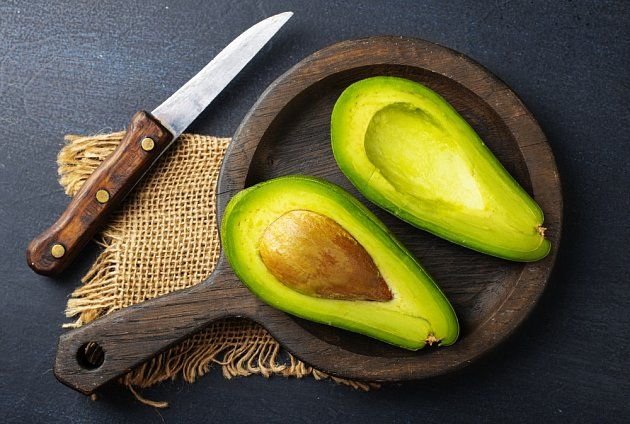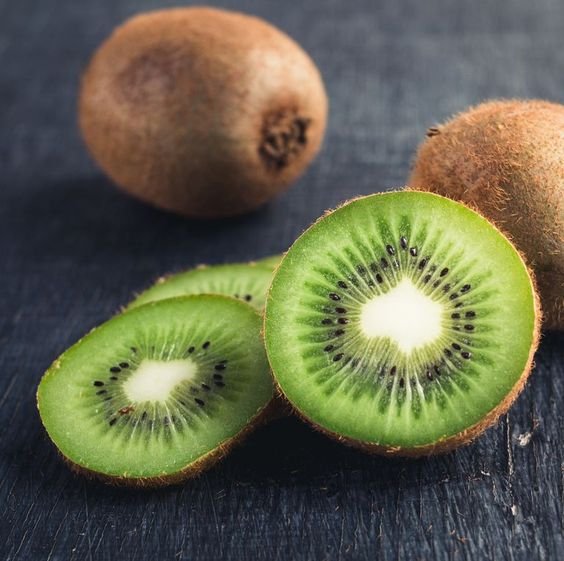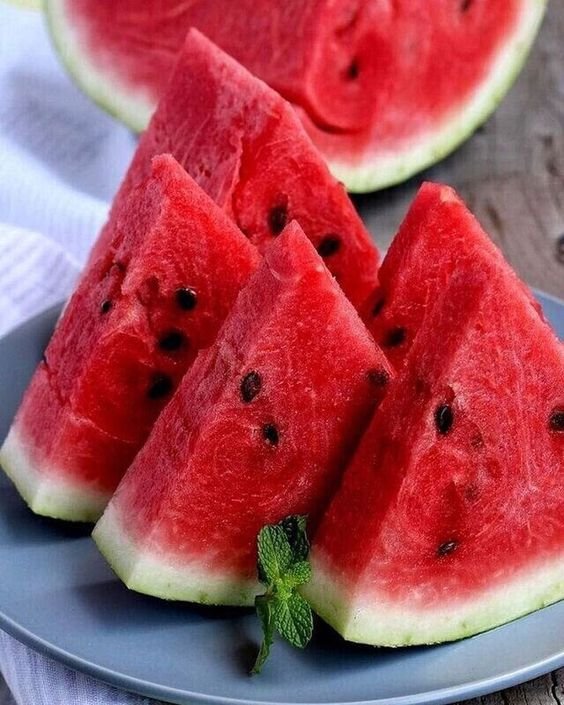
Fruits with low sugar content are those that contain relatively lower amounts of natural sugars compared to other fruits. These fruits are often favored by individuals who are monitoring their sugar intake, such as those with diabetes or those following a low-sugar diet. Examples of fruits with lower sugar content include berries (such as strawberries, raspberries, and blackberries), citrus fruits (such as lemons, limes, and grapefruits), and avocados. These fruits provide essential vitamins, minerals, and fiber while contributing fewer grams of sugar per serving compared to higher-sugar fruits like grapes, bananas, and mangos. Choosing fruits with lower sugar content can help individuals manage their blood sugar levels and overall carbohydrate intake more effectively.
Berries:
Berries, such as strawberries, raspberries, blackberries, and blueberries, are often praised for their delicious taste and vibrant colors. But beyond their visual appeal and delightful flavor, these fruits offer numerous health benefits, particularly for those who are mindful of their sugar intake. One of the primary reasons berries are recommended for individuals watching their sugar intake is their low sugar content. Compared to many other fruits, berries tend to have relatively low levels of natural sugars. For instance, one cup of strawberries contains about 7 grams of sugar, while a cup of raspberries contains approximately 5 grams. Blackberries and blueberries also fall within this range, with roughly 7 grams and 15 grams of sugar per cup, respectively. This moderate sugar content makes berries a suitable choice for individuals looking to manage their blood sugar levels or reduce their overall sugar consumption. Additionally, berries are rich in dietary fiber, which further contributes to their suitability for those concerned about sugar intake. Fiber plays a crucial role in regulating blood sugar levels by slowing down the absorption of sugar in the bloodstream. This slower absorption helps prevent spikes in blood sugar levels, which can be especially beneficial for individuals with diabetes or those at risk of developing the condition. Furthermore, fiber promotes feelings of fullness and satiety, which can aid in weight management and control cravings for sugary snacks. Beyond their sugar and fiber content, berries are packed with essential nutrients and antioxidants. These include vitamins such as vitamin C, which supports immune function and collagen production, as well as vitamin K, which plays a role in blood clotting and bone health. Berries also contain various antioxidants, such as flavonoids and anthocyanins, which help combat oxidative stress and inflammation in the body. By reducing oxidative damage, these antioxidants may help lower the risk of chronic diseases like heart disease, cancer, and neurodegenerative disorders. Incorporating berries into your diet is relatively easy and versatile. They can be enjoyed fresh as a snack, added to smoothies, yogurt, or oatmeal for breakfast, or used in salads and desserts for a flavorful and nutritious boost. Since they are available year-round, either fresh or frozen, you can enjoy the benefits of berries regardless of the season.

Avocado:
Avocado, scientifically known as Persia Americana, stands out as a remarkable fruit with a unique nutritional profile. Despite being classified botanically as a fruit due to its structure containing a seed, avocados defy conventional fruit stereotypes with their low sugar content and high healthy fat content, making them a standout choice for individuals seeking to manage sugar intake while prioritizing nutrition. One of the key distinguishing features of avocados is their low sugar content. Unlike many other fruits, which are typically associated with higher levels of naturally occurring sugars such as fructose, glucose, and sucrose, avocados contain very little sugar. This low sugar content makes them an attractive option for individuals following diets that aim to minimize sugar intake, including those managing conditions like diabetes or simply striving for overall health and wellness. IN addition to being low in sugar, avocados are renowned for their high healthy fat content. The predominant type of fat found in avocados is monounsaturated fat, particularly oleic acid, which is associated with numerous health benefits. Monounsaturated fats have been linked to improved heart health by helping to reduce levels of LDL (low-density lipoprotein) cholesterol, often referred to as “bad” cholesterol, while simultaneously increasing levels of HDL (high-density lipoprotein) cholesterol, known as “good” cholesterol. This balance is essential for maintaining cardiovascular health and reducing the risk of heart disease. Furthermore, the fat content in avocados serves to enhance satiety and promote feelings of fullness, which can be beneficial for weight management and appetite control. Incorporating avocados into meals can help individuals feel more satisfied and less prone to overeating, potentially supporting weight loss or weight maintenance efforts. Beyond their macronutrient composition, avocados are also rich in essential vitamins, minerals, and phytonutrients. They are an excellent source of potassium, a mineral crucial for maintaining healthy blood pressure levels and proper muscle function. Avocados also contain significant amounts of vitamins C, E, K, and B-vitamins, as well as antioxidants like lutein and zeaxanthin, which contribute to eye health and may help protect against age-related macular degeneration.

Lemons and Limes:
Lemons and limes are two of the most versatile citrus fruits, prized not only for their tangy flavor but also for their low sugar content. Their unique taste profiles make them invaluable additions to various culinary creations, ranging from savory dishes to sweet desserts and refreshing beverages. One of the key characteristics of lemons and limes is their low sugar content, which distinguishes them from many other fruits. While they do contain natural sugars, they are present in relatively small amounts compared to other fruits like oranges or grapes. This makes lemons and limes particularly suitable for individuals who are mindful of their sugar intake, such as those managing diabetes or following low-carb diets. Despite their low sugar content, lemons and limes pack a punch of flavor. Their acidity adds brightness and zest to dishes, enhancing the overall taste profile without the need for excessive amounts of sugar. This makes them invaluable ingredients for chefs and home cooks alike, allowing them to create dishes that are both flavorful and health-conscious. IN addition to their culinary uses, lemons and limes are also prized for their versatility in beverages. From classic cocktails like the margarita and the mojito to refreshing lemonades and limeades, these citrus fruits are essential for crafting drinks that are both refreshing and flavorful. Their acidic nature not only adds taste but also helps balance the sweetness of other ingredients, resulting in well-rounded and satisfying beverages. Beyond their culinary and beverage applications, lemons and limes are also valued for their health benefits. They are rich in vitamin C, a powerful antioxidant that supports immune function and promotes overall health. Furthermore, the citric acid found in these fruits may aid in digestion and help alkalize the body, contributing to better health and well-being.
Kiwi:
Kiwi fruit, scientifically known as Actinidic delicious, is a small, oval-shaped fruit with a brown, fuzzy exterior and vibrant green flesh containing tiny black seeds. It is renowned for its unique flavor and numerous health benefits. Despite its diminutive size, the kiwi packs a powerful nutritional punch. One of the key attributes of kiwi fruit is its relatively low sugar content compared to many other fruits. This makes it an excellent choice for individuals seeking to manage their sugar intake, including those with diabetes or those aiming to maintain stable blood sugar levels. The low glycemic index of kiwi further supports its suitability for individuals concerned about blood sugar regulation. Beyond its sugar content, kiwi fruit is rich in dietary fiber, which is essential for maintaining digestive health. Fiber aids in digestion by promoting regular bowel movements, preventing constipation, and supporting the growth of beneficial gut bacteria. This, in turn, contributes to overall gut health and may reduce the risk of digestive disorders such as diverticulitis and colorectal cancer. Furthermore, kiwi fruit is a veritable powerhouse of vitamins and minerals. It is particularly notable for its high vitamin C content, with just one medium-sized kiwi providing well over the recommended daily intake of this essential nutrient. Vitamin C is renowned for its antioxidant properties, which help combat oxidative stress and protect cells from damage caused by harmful free radicals. Additionally, vitamin C plays a crucial role in supporting the immune system, promoting collagen synthesis for healthy skin, and enhancing iron absorption. IN addition to vitamin C, kiwi fruit contains other essential vitamins and minerals, including vitamin K, vitamin E, potassium, and folate. Vitamin K is vital for blood clotting and bone health, while vitamin E acts as a potent antioxidant, protecting cell membranes from oxidative damage. Potassium is crucial for maintaining electrolyte balance, regulating blood pressure, and supporting heart health, while folate is essential for DNA synthesis and cell division, making it particularly important during periods of growth and development, such as pregnancy. Moreover, the bioactive compounds found in kiwi fruit, such as flavonoids and carotenoids, have been linked to various health benefits, including reducing inflammation, improving cardiovascular health, and supporting vision.

Watermelon:
Watermelon, beloved for its juicy sweetness and refreshing crunch, is not only a delicious treat but also a nutritional powerhouse. Despite its delectable taste, watermelon stands out among fruits for its relatively low sugar content, making it an excellent choice for those mindful of their sugar intake. Watermelon’s sweetness comes primarily from natural sugars like fructose, glucose, and sucrose, but compared to other fruits like bananas or grapes, it contains a lower concentration of these sugars per serving. This characteristic makes watermelon a favorable option for individuals watching their sugar consumption, including those managing conditions like diabetes or simply aiming for a healthier diet. What truly sets watermelon apart, however, is its exceptionally high water content. Comprising over 90% water, biting into a slice of watermelon is akin to indulging in a hydrating oasis. This high water content not only contributes to the fruit’s signature juicy texture but also makes it an ideal choice for staying hydrated, especially during hot summer months or after physical activity. Beyond its sugar and hydration benefits, watermelon also packs a nutritional punch. It’s a rich source of essential vitamins and minerals, including vitamins A and C, which are potent antioxidants that help support immune function and promote healthy skin. Additionally, watermelon contains small amounts of potassium, a crucial electrolyte that aids in maintaining proper fluid balance and muscle function. Furthermore, watermelon offers other health benefits beyond its nutritional profile. Its high water and fiber content can aid digestion and promote feelings of fullness, making it a satisfying snack for those looking to manage their weight. Plus, its natural sweetness can satisfy cravings for sugary treats in a healthier way, potentially reducing the consumption of less nutritious snacks.

Cantaloupe:
Cantaloupe, a type of melon, offers a delightful combination of flavor and nutrition. It is characterized by its sweet and juicy flesh, often enjoyed during the summer months when it’s in peak season. Beyond its delicious taste, cantaloupe is also a valuable source of essential nutrients, making it a popular choice for those looking to maintain a healthy diet. One of the notable qualities of cantaloupe is its moderate sugar content. Unlike some other fruits that can be high in sugars, cantaloupe strikes a balance, making it suitable for individuals who are mindful of their sugar intake. This makes it an excellent choice for those looking to manage their blood sugar levels or reduce their overall sugar consumption. IN addition to being relatively low in sugar, cantaloupe is rich in essential vitamins and minerals. It is particularly high in vitamins A and C, both of which play crucial roles in supporting overall health and well-being. Vitamin A is essential for maintaining healthy vision, supporting immune function, and promoting skin health. Cantaloupe is an excellent source of beta-carotene, a precursor to vitamin A, which the body converts as needed. Regular consumption of cantaloupe can thus contribute to meeting your daily vitamin A requirements, supporting optimal health. Similarly, cantaloupe is abundant in vitamin C, a powerful antioxidant that plays a vital role in immune function, collagen synthesis, and wound healing. Adequate intake of vitamin C is essential for maintaining a strong immune system and protecting the body against infections and illnesses. Incorporating cantaloupe into your diet can help boost your vitamin C intake, especially during cold and flu season. Beyond its vitamin content, cantaloupe also provides other essential nutrients, including potassium, magnesium, and dietary fiber. Potassium is important for maintaining healthy blood pressure levels and supporting proper muscle function, while magnesium is involved in hundreds of biochemical reactions in the body, including energy production and nerve function. Meanwhile, dietary fiber promotes digestive health, regulates bowel movements, and helps keep you feeling full and satisfied. Overall, cantaloupe offers a delicious and nutritious addition to any diet. Whether enjoyed on its own, added to fruit salads, or blended into smoothies, cantaloupe provides a refreshing burst of flavor along with a host of health benefits. Incorporating this versatile fruit into your meals and snacks can help you meet your nutritional needs while satisfying your taste buds.

